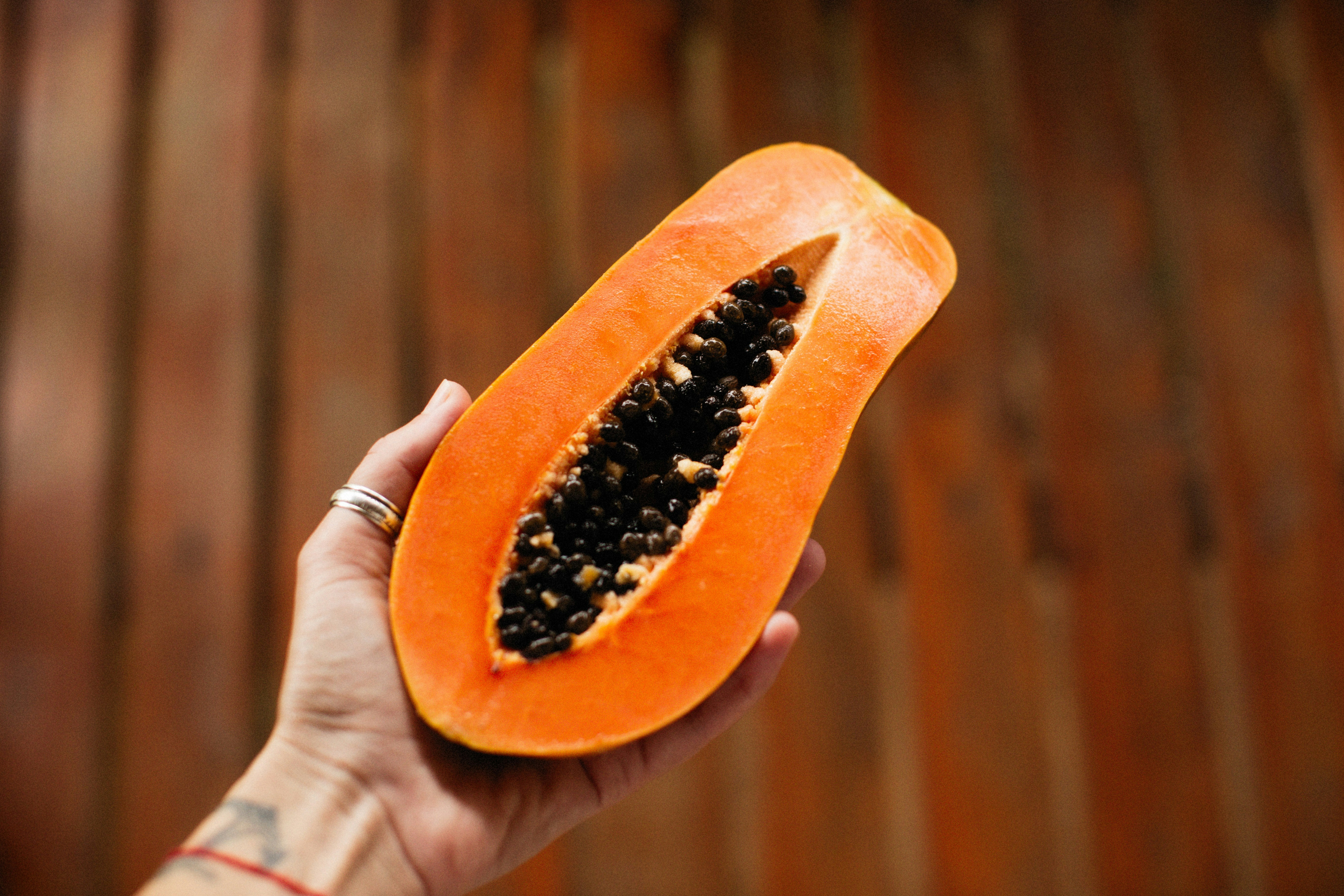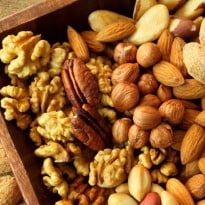Nuts contain unsaturated fats, protein and a range of vitamins and minerals that lower cholesterol, inflammation and insulin resistance. A recent study suggests that you should include at least 50 grams of almonds, cashews, chestnuts, walnuts or pistachios in your diet to control blood fats (triglycerides) and sugars - two of the five markers for metabolic syndrome. The study was published in the journal BMJ Open.Tree nuts tend to healthier than others. Family of tree nuts includes almonds, Brazil nuts, cashews, chestnuts, hazelnuts, hickory nuts, macadamia nuts, pecans, pine nuts, pistachios, and walnuts amongst others. A person develops metabolic syndrome if he or she has three of the following risk factors - low levels of "good" cholesterol, high triglycerides, high blood pressure, high blood sugar and extra weight around the waist. By including at least 50 grams of almonds, cashews, chestnuts, walnuts or pistachios in your diet, blood fats (triglycerides) and sugars can be controlled effectively.
"Eating tree nuts is good for lowering risk for heart disease and other health problems such as diabetes and strokes," said John Sievenpiper, a physician at St Michael's Hospital in Toronto. However, the greatest benefit can be reaped only if they are consumed daily.The study found a "modest decrease" in blood fats known as triglycerides and blood sugars among people who added tree nuts to their diets compared to those who ate a control diet. To reach this conclusion, Sievenpiper screened 2,000 articles published in peer-reviewed journals and found 49 randomised control trials with 2,000 participants.Sievenpiper says that the largest reductions in triglycerides and blood glucose were seen when tree nuts replaced refined carbohydrates rather than saturated fats. He also added that there was no adverse impact on the other risk factors for metabolic syndrome or weight gain, even though nuts are high in calories. "Fifty grams of nuts can be easily integrated into a diet as a snack or as a substitute for animal fats or refined carbohydrates," Sievenpiper noted.
"Eating tree nuts is good for lowering risk for heart disease and other health problems such as diabetes and strokes," said John Sievenpiper, a physician at St Michael's Hospital in Toronto. However, the greatest benefit can be reaped only if they are consumed daily.The study found a "modest decrease" in blood fats known as triglycerides and blood sugars among people who added tree nuts to their diets compared to those who ate a control diet. To reach this conclusion, Sievenpiper screened 2,000 articles published in peer-reviewed journals and found 49 randomised control trials with 2,000 participants.Sievenpiper says that the largest reductions in triglycerides and blood glucose were seen when tree nuts replaced refined carbohydrates rather than saturated fats. He also added that there was no adverse impact on the other risk factors for metabolic syndrome or weight gain, even though nuts are high in calories. "Fifty grams of nuts can be easily integrated into a diet as a snack or as a substitute for animal fats or refined carbohydrates," Sievenpiper noted.
Advertisement










